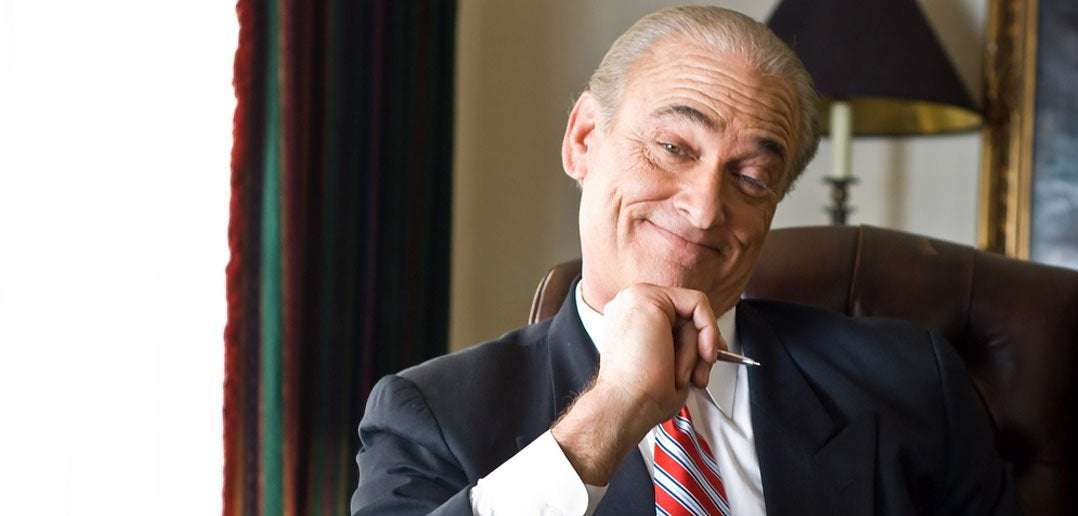People of higher status are more likely to think that those who disagree with them are stupid or biased — even when their high status is the result of a random process. That’s the main finding from new research published in Personality and Social Psychology Bulletin.
The findings could help explain why wealthier individuals tend to be more politically engaged than the less wealthy.
“We were initially interested in this topic because we wanted to try to make sense of two observations we had: (1) economic inequality has been rising to historically high levels, and (2) political discourse is becoming increasing polarized,” said study authors Jazmin Brown-Iannuzzi, an assistant professor at the University of Virginia, and Kristjen Lundberg, an assistant professor at the University of Richmond.
“We — along with others, including some researchers in political science — thought that these trends might be related. We wanted to understand, from a psychological perspective, why that might be the case.”
“We speculated that people who occupy higher positions in the economic hierarchy may be more likely to think their political views — which are often aligned with their self-interest — are objectively correct compared to those who occupy lower positions. As a result, higher-status people may be more likely to maintain uncompromising positions and to react unfavorably toward those who disagree with them, which essentially sets them up to sustain or exacerbate the status quo.”
The view that one’s own positions are objectively true — while anyone who disagrees is uninformed, irrational, or biased — is called naive realism.
The researchers first analyzed data from 2,374 individuals who participated in the 2016 American National Election Studies Time Series Survey, a nationally representative survey of U.S. citizens. As expected, liberals and conservatives were more likely to describe the opposing political party as uninformed, irrational, and/or biased compared to their own party.
Importantly, the researchers found that this was especially true among those with a higher socio-economic status. Among more liberal participants, higher status individuals displayed more naive realism toward Republicans. Among more conservative participants, higher status individuals displayed more naive realism toward Democrats.
In a follow-up experiment, the researchers experimentally manipulated people’s sense of status through an investment game. The study of 252 participants found that those who were randomly told they had performed “better than 89% of all players to date” were more likely to say that people who disagreed with their investment advice were biased and incompetent.
In the initial experiment, the participants were unaware the outcome of their “performance” was in fact random. So the researchers conducted a second experiment with another 523 participants, in which they were told that the outcomes of the investment game were determined entirely by chance. But those who randomly performed better were still more likely to say that people who disagreed with them were incompetent.
The researchers extend the methodology in two more experiments with 643 individuals. After finishing the investment game, the participants were told they would be voting on changes to the rules for the next version of the game. Those in the high status condition were more likely to say that the votes of other participants should be given less weight than their own after they imagined a disagreeing participant.
“Feeling relatively richer may lead an individual to think their political views are more valid and to try to exclude or suppress the opinions of those who disagree with them,” Brown-Iannuzzi and Lundberg told PsyPost.
There are still some unanswered questions. For example, it is unclear why people with a higher socio-economic status are more likely to engage in political naive realism.
“It isn’t clear which aspects of feeling relatively richer most directly influence people’s perceptions of their political views as more correct than others. Our results suggest that it’s because feeling relatively higher in the hierarchy, regardless of why you hold that position, confers a sense of competence. But, there may be other aspects at play, too,” the researchers explained.
“Relatedly, perceiving one’s political views as more valid than others’ is only one among a host of different mechanisms that can lead to political conflict. For example, previous research has also found that those who are relatively richer tend to have more narcissistic personality traits. Narcissism, in turn, may also foster a tendency to maintain an uncompromising position.”
“These findings have important implications for understanding not only political polarization, but also who feels entitled to engage politically and what individual and interpersonal barriers there might be to full political participation,” Brown-Iannuzzi and Lundberg added.
The study, “A Privileged Point of View: Effects of Subjective Socioeconomic Status on Naive Realism and Political Division“, was authored by Jazmin L. Brown-Iannuzzi, Kristjen B. Lundberg, Aaron C. Kay, and B. Keith Payne.

Z01dbrg on June 17th, 2020 at 17:29 UTC »
funny how nothing points to the conclusion in the title...
"
The findings could help explain why wealthier individuals tend to be more politically engaged than the less wealthy."hrakkari on June 17th, 2020 at 13:30 UTC »
There’s probably many reasons. Wealthy people have more spare time and money. Politicians generally pander to them for donations and connections.
FLT8 on June 17th, 2020 at 12:45 UTC »
Also, wealthier people are more likely to benefit from the political process. I say this as the owner of a business that has a rather large government contract.